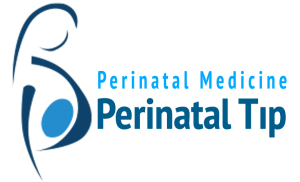
What is Perinatology?
What is Perinatology?
 It is a specialty that carries out the identification, diagnosis and treatment of problematic pregnancies. After becoming a Gynecology and Obstetrics Specialist, it is necessary to take a minor specialization training in this subject for at least 3 years.
It is a specialty that carries out the identification, diagnosis and treatment of problematic pregnancies. After becoming a Gynecology and Obstetrics Specialist, it is necessary to take a minor specialization training in this subject for at least 3 years.
It is the science that deals with the health of both mother and baby. The aim is to identify risky situations and plan follow-up and treatment accordingly.
Risk pregnancy is a very broad concept. An important part of the risks; genetic structure, age and lifestyle determines. We can reduce some risks by changing our lifestyle (such as smoking, weight, drug use, exercise, stress). In fact, there are risks that concern more or less all pregnant women. The important thing is to identify those in the higher risk group and to take precautions, if any. We make this evaluation more effectively in the light of the following information;
Age
History of previous pregnancies (miscarriage, premature birth, diabetes, blood pressure, abnormal baby etc.)
Medical history of the pregnant (disease, surgery, allergy)
-Current health status
-Family history
-Fetus (The condition of the baby in the womb)
-Risk of chromosome or gene disorders
-Developmental delay
-Organ anomalies
-Blood incompatibilities
-Twin – multiple pregnancies
-Amniotic fluid anomalies
-Placental location anomalies
-Big baby
-Cardiac development anomalies
-Down Syndrome risk
-Fetal vein-blood circulation problems
-Lung fluid collections
-Bone development problems
-Reflection of mother’s infections to the baby
-Facial and brain development problems
-Posture anomalies
-Kidney development and urinary tract problems
-Cyst formations in the fetus
-Fetal tumors